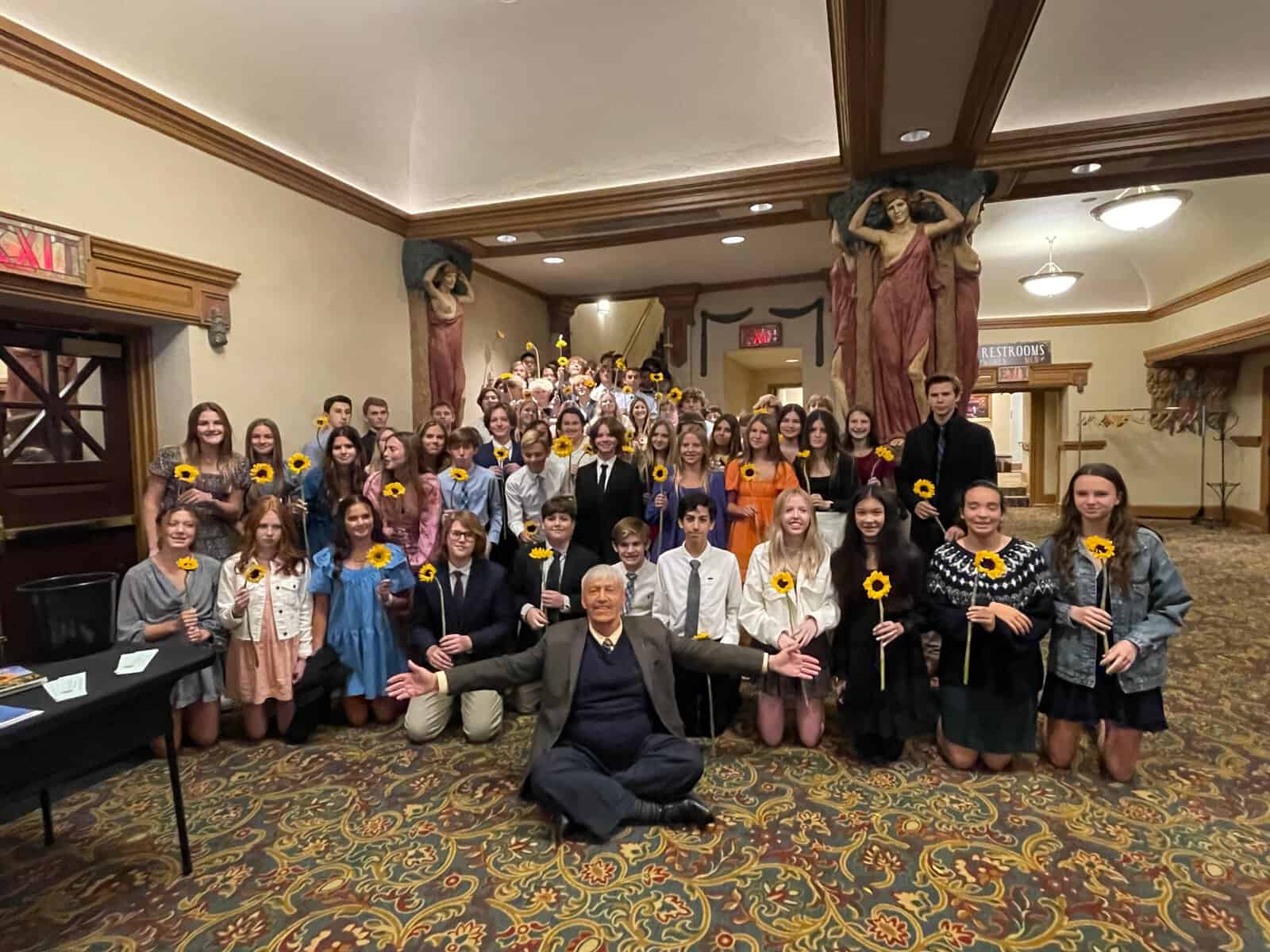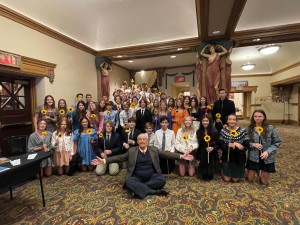How often in life is something worth a two-year wait? The Holocaust Commission proved this can absolutely be true.
Sponsored by Bank of America and originally scheduled for October of 2020, then postponed twice by the pandemic, Tom Dugan came to town last month with his one-man show based on the life of Simon Wiesenthal. Dugan brought this “5% hero” to life for the community one evening, and to a packed house of students the next morning. (Wiesenthal had files on 22,000 Nazis and brought 1,100 to trial—thus he felt being described “a hero” was too much. “Maybe a 5% hero?”)
Simon Wiesenthal, sometimes called the “Jewish James Bond,” was a survivor of many concentration camps who dedicated his life to bringing criminal Nazis to justice. The play portrays Wiesenthal, who died in 2005, in his office on the day of his retirement in 2003. The audience, with whom he sometimes interacts, represents a student group assembled to learn about his work. And Dugan delivers a master class.
The play is designed not to horrify or bring tears, though the events Wiesenthal describes surely do both. Instead of focusing on the details of emotional pain or atrocities, Dugan’s Wiesenthal uses them, as he notes about the value of the trial of Adolf Eichmann, to force humanity to look in the mirror. “If this one man was capable of such cruelty,” he reasoned, “then we all are.” Wiesenthal wanted “to convey what happens when barbarism meets technology….It does not take a criminal mind to commit mass murder,” Dugan’s Wiesenthal said. “Only blind obedience to authority.”
As Wiesenthal, Dugan commanded the stage, using all of it to talk about the Nazi hunter’s origins in what is now Ukraine—losing his family, his survival, and reunion with his “young wife,” to whom he was married for another 60 years. He also shared stories of some of the most famous criminals he helped capture, with the assistance of many western governments. Even on his “last day,” he tried in vain to secure the capture of a Nazi who was living under an assumed name in Syria.
After the 90-minute play’s evening performance, Dugan held a Q&A session and continued to engage the audience with more stories of his creation of the play, somewhat inspired by his father, who liberated a concentration camp (“Not by himself!” Dugan quipped.) Few people left their seats until he had finished, and then they enjoyed a dessert reception sponsored by Cooper Hurley Injury Lawyers, with treats provided by Bakers Crust.
The next morning, Dugan staged a repeat performance to a group of more than 400 middle and high school students from across the area. These are the shows he likes best, because, as Wiesenthal knew, education about the horrors of history is the only thing that will keep them from happening again. The students came from public, private, and home school groups. They and their chaperones were very engaged throughout the show, and one group from Cape Henry Collegiate was able to stay long after the Q&A to speak with the playwright/actor.
With the controversy currently surrounding the revision of the Commonwealth of Virginia’s History and Social Science Standards of Learning, the importance of teaching REAL history is apparent. (The Holocaust Commission is dedicated to helping educators teach Holocaust and the histories of other genocides, so that lessons can be learned.)
One of the scenes from the play detailed how the “lost boys of Europe” could not believe the truth because their ashamed fathers had minimized the horrors of the war. Wiesenthal took it upon himself to find the man who arrested Anne Frank, perhaps the best-known victim of the Holocaust, and have him admit to this act. He found him, serving as a police officer in Vienna, just a few miles from Wiesenthal’s home. His admission served to confirm the truth for countless would-be deniers.
It is everyone’s job to remember the victims and the heroes, and keep them alive with their history. Elie Wiesel said, “If you listen to a witness, you become a witness.”
Thanks to this powerful production, there are close to 1,000 more witnesses. Please use your voice to stand up for witnesses and their history, whether it is with the Board of Education or a bully or a Holocaust denier. We owe it to their memory.
Elena Barr Baum served as the director of the United Jewish Federation of Tidewater Holocaust Commission from 2010 to 2022.


